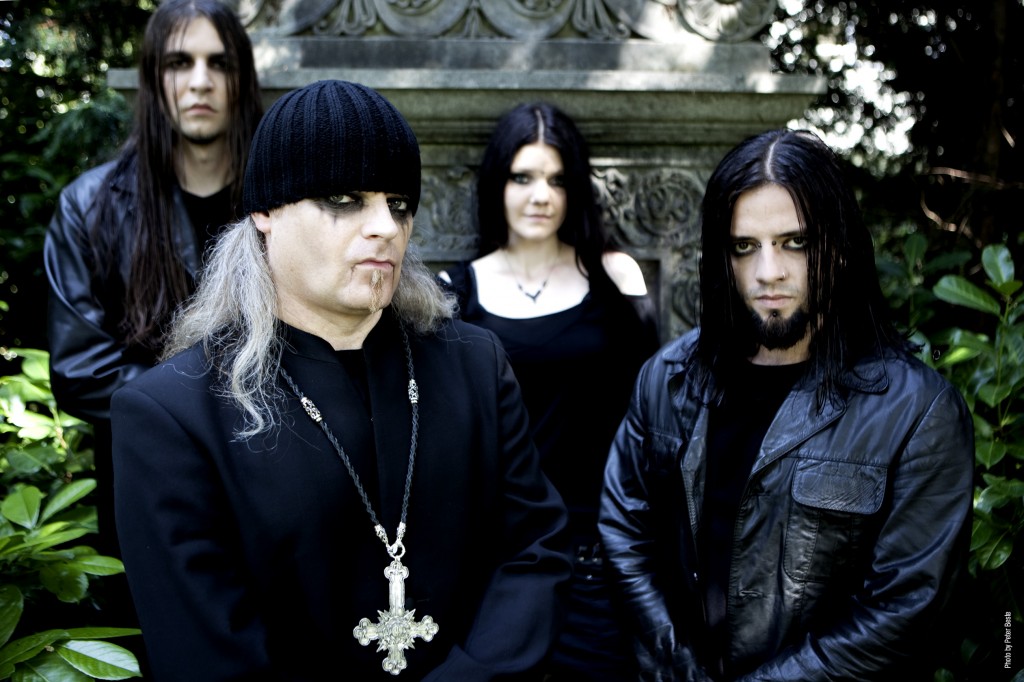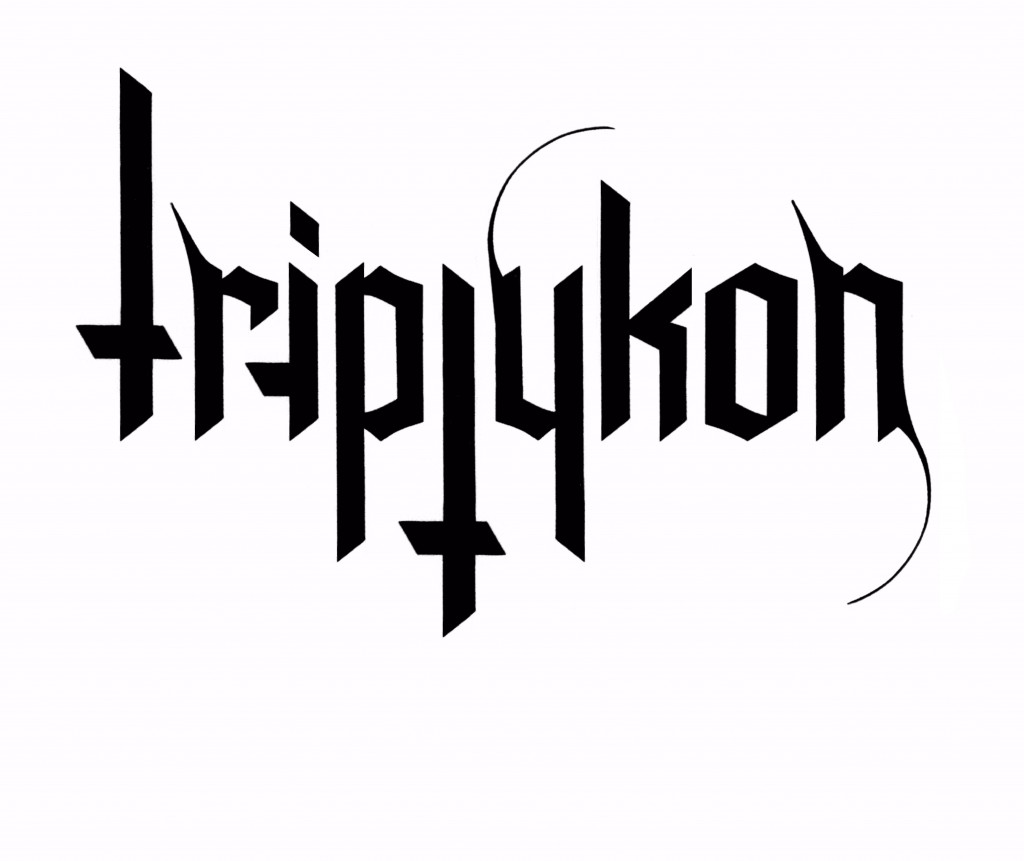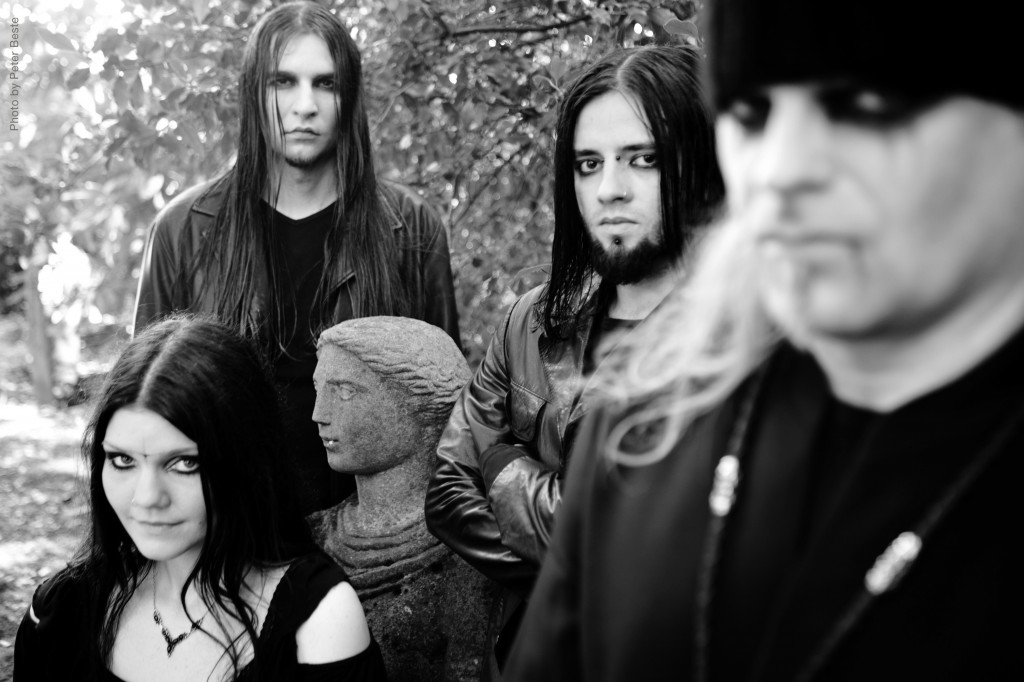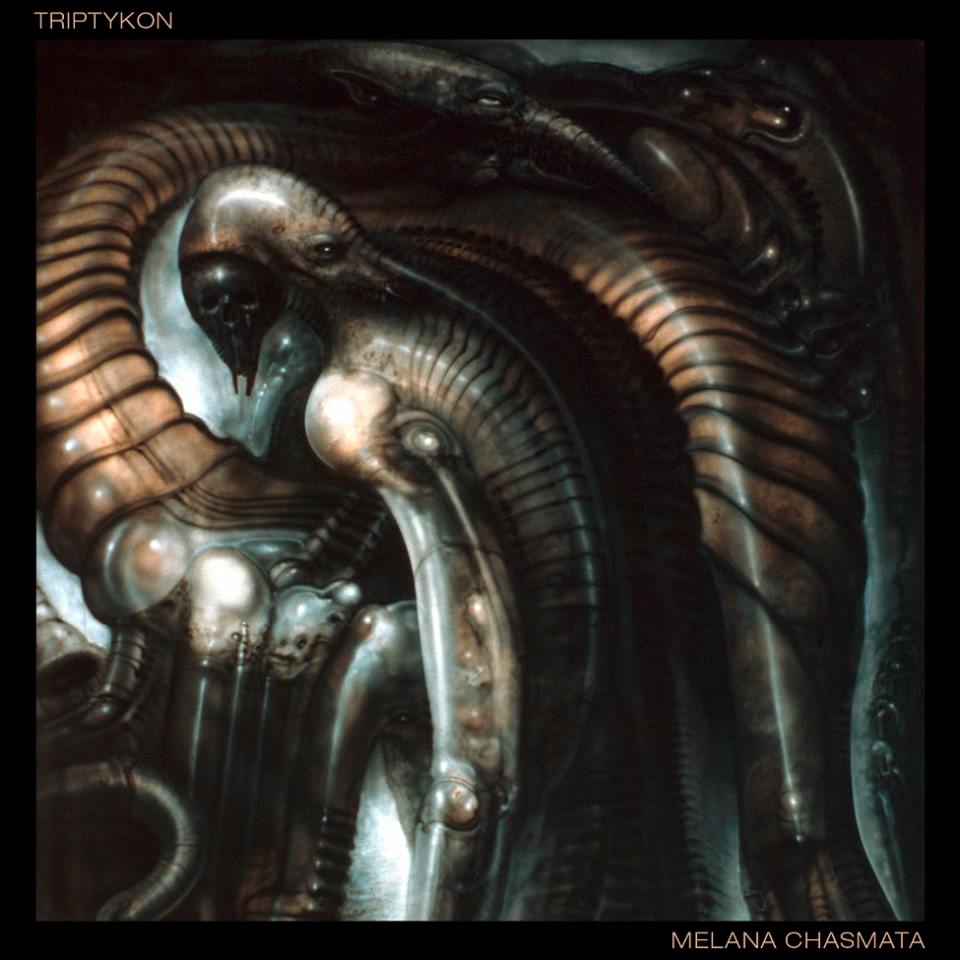If you follow the black metal scene at all then chances are you’re already familiar with Triptykon or are at least aware that it’s the new band fronted by vocalist, guitarist and songwriter Tom Gabriel Fischer (a.k.a. Tom Gabriel Warrior) of the late black/extreme metal bands Hellhammer and Celtic Frost. If I understand correctly, Triptykon, which hadn’t yet been named, was intended to be a side project by Fischer because he found himself overflowing with creativity during a point where Celtic Frost had become, well, a wreck. (According to their press release, the situation with the now late band had rendered it virtually impossible for Fischer to convene the band for songwriting and rehearsal sessions for the intended follow-up to their album Monotheist.)
As hard as it is to believe, Melana Chasmata (“deep, dark valleys/depressions”) is Triptykon’s second album already, following 2010’s Eparistera Daimones (“to my left, the demons”), an album that seemed to divide Fischer’s longtime fans, proving to be a love it or hate it affair. To be entirely honest, I’ve yet to hear Daimones, so I can’t tell you about the differences between the albums. I can, however, tell you that Chasmata is an extremely dark, unholy beast that is not for the faint of heart. And while its haunting cover art by H.R. Giger, might use a relatively small number of colors, Chasmata is actually a rather colorful album, jumping from one genre to the next, often within the confines of a single song. Yes, the music is consistently dark and so is the subject matter, but that doesn’t mean that you can’t have a wide color palette within the confines of that. And I doubt very much that Fischer actually gives a damn about genre distinctions. I think he just writes what interests him, lyrically and musically, and then he records it and if people like it, awesome, if not, I’m sure he’s still satisfied with himself for bringing his vision to life. He’s not going to just growl his vocals at all times to please the portion of the metal audience that will only listen to music that fires in that direction at constantly. And I’m sure he didn’t lose any sleep when some of his fans weren’t crazy about Daimones.
Melana Chasmata opens with the fierce, pummeling “Tree Of Suffocating Souls,” which is probably the music they play when you’re spiraling down the flames of hell. It begins with a taste of scorching guitars and quickly lets Norman Lonhard’s drums take over and smack you straight across the head. But as the nearly eight minute song goes on, it often changes shape, although its parts repeatedly come together to form a completed puzzle that never lacks direction. I especially like the call and response part where Fischer screams things like “I am your lie” then responds to himself in a demonic voice that shouts the same. And yet it’s the spoken word segment of the song that actually sounds the creepiest as he says things like “as masses submit to embrace / and the maker reveals his one face / as the plague of humanity arrives / I drown in this blood contrived.” For some reason, it keeps reminding me of Motley Crue’s “In The Beginning,” the eerie spoken word intro to Shout At The Devil. There’s even a mean, gritty bass solo thrown in for good measure.
Next, “Boleskine House” proves creepier still with ethereal female vocals by Simone Vollenweider accompanying Fischer’s spoken word. A couple of minutes into the track things actually get scarier when all we hear are tribal-ish drums and Vanja Slajh’s hissing bass. It somehow gives you the impression that there’s something evil hiding in the dark corner, ready to strike you if you keep on listening. Yet you *will* keep listening because it’s like driving by a car accident and feeling compelled to look even though you know might see something absolutely terrifying.
“Altar Of Deceit” is essentially a perfect blend of black metal and doom metal, the vocals being black metal and the music being pure, grinding doom. During the moments when it’s easiest to understand Fischer’s vocals — “I shall never see / your altar of deceit / entwine / self-contrived sun” — you’ll probably wonder if he’s conducting some sort of black mass with the song, if he’s not inviting the devil to come along and get you. Is it creepy? Absolutely. But you won’t shut it off. No way. Especially if you’re a fan of Hellhammer, or a fan of Gallhammer, the ever-growling group of women inspired by Hellhammer.
Thrash is the word du jour with “Breathing,” or perhaps you prefer the term speed metal? It’s funny how so much metal was called speed metal back in the ’80’s but now the term is more or less obsolete. But you know Fischer remembers it and was thinking along those lines when he wrote this song, which is like a brutal, high octane cross between Exodus and Slayer. I especially like the insanely fast guitar solo, which also finds the drums pounding away as fast as is humanly possible. (Norman Lonhard deserves a drummer of the year award for his flawless work on this album.) Quite vicious!
Things slow down considerably on the following track, “Aurorae,” which references “a spirit wasting away” and “the weariness of days.” Second to last comes the album’s most epic track, the doom-laden 12:25 “Black Snow,” which adds whispering to the seemingly endless number of vocal styles on the album. It certainly sounds demonic, although not quite as much as the album’s sixth track, a twisted and grinding tune actually called “Demon Pact.”
The album closes with “Waiting,” which starts off with Vollenweider singing — more like chanting — “we are the same” way off in the distance. (The first time I listened to it, I turned the volume on my stereo all the way up and still couldn’t understand her.) Added next is a faint but ominous bass guitar track. Eventually, crunchy guitars and sparse drums join the mix and Fischer finally contributes to the vocals, but that’s not until nearly 2 minutes into the song, just after the volume of Vollenweider’s vocals is increased and we clearly hear her chanting “we are the same” over and over again. Fischer does a few different but subtle vocal styles in this song — chanting, mumbling, whispering — enough to make you think you’re listening to the internal monologue of a psychopath with multiple personalities. If there’s one song on the album that’s dark and menacing enough that you can probably bet it’s a satanic spell or something to that effect, it’s this one — a trace of blood / we shall be free” — and it’s the perfect comedown after an album that packs such brute force during the majority of the eight tracks that precede it.
If you buy one extreme/black metal album this Spring, Melana Chasmata should be it.





Leave a Reply